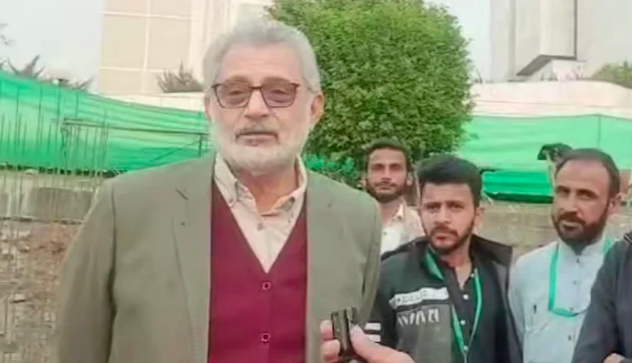By Staff Reporter
ISLAMABAD: The Chief Justice of Pakistan Qazi Faez Isa on Saturday dismissed accusations that he and the country’s top election official had manipulated the results of the February 8 parliamentary elections, calling them “baseless” and “without any truth or evidence”.
The accusations were made by a senior bureaucrat, Liaquat Ali Chattha, who resigned as the commissioner of Rawalpindi division and confessed to altering the results of 13 national and 26 provincial assembly seats.
Chattha said he was surrendering to the police and deserved the death penalty for his role in the electoral fraud. He also claimed that the chief election commissioner, Sikandar Sultan Raja, and Chief Justice Isa, were “also completely involved” in the scheme, but did not offer any proof to back up his charges.
Speaking to reporters in Islamabad, Chief Justice Isa said he had nothing to do with the national elections and asked the accuser to provide evidence for his claims.
“Forget about me as an individual, but there are [state] institutions in Pakistan,” he said. “Don’t destroy them any further. If you make baseless allegations, which have no truth in them, and you don’t offer any evidence, then you can level any accusation [like this]. Tomorrow you can raise allegations of stealing or murder. If it is your right to accuse people, you should also fulfill your responsibility by providing evidence.”
Justice Isa also said he was not in favor of issuing a contempt notice to Chattha, who could face legal action for his remarks.
He said his role was only limited to facilitating the conduct of elections, and that the Supreme Court did not order the elections, but rather asked the president and the election commission to agree on a date.
“If someone did not want elections, that’s another story.”
The Chief Justice said the court had intervened in election-related cases only to prevent further delays, and that he would hear another case seeking the annulment of the recent polls next week amid mounting allegations of manipulation.
However, he declined to comment on whether he would summon Chattha to present evidence of his claims.
The elections, held on Feb. 8, failed to produce a clear winner, as independent candidates, most of them loyal to the former prime minister Imran Khan, won the most seats in the 266-member National Assembly, followed by the parties of former prime minister Nawaz Sharif and former president Asif Ali Zardari.
But Khan’s Pakistan Tahreek-e-Insaf party, which had faced a series of obstacles before the polls, including a ban on its rallies, the removal of its party symbol and the disqualification of dozens of its candidates, claimed that it had been robbed of victory in dozens of constituencies, where it alleged that the results were delayed, manipulated or rigged.
The PTI’s allegations came amid mounting criticism from domestic and international observers, who raised concerns over the transparency and credibility of the elections, which were disrupted by a day-long suspension of cellular services, the detention of political activists, and reports of violence and terror threats.
The controversy over the election results has plunged Pakistan into a political crisis and raised doubts about the legitimacy of the next government, which is expected to be formed by Sharif’s party with the support of Zardari’s PPP and some smaller parties.
Copyright © 2021 Independent Pakistan | All rights reserved




